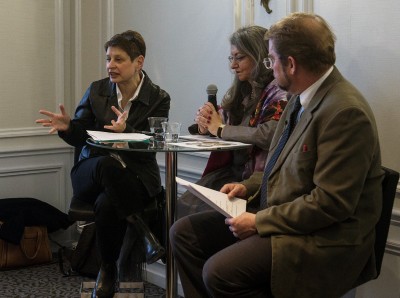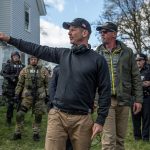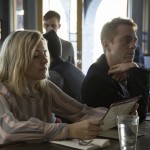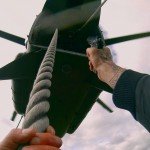
Three international affairs experts gathered Thursday night to speak about the ongoing situation between Ukraine and Russia. Members of the panel, which was hosted by Boston University’s Frederick S. Pardee School of Global Studies, spoke about Russian President Vladimir Putin’s advances into the Crimean region of Ukraine.
The panel, attended by approximately 50 people, featured Nina Khrushcheva, an international affairs professor at The New School, Ireneusz Pawel Karolewski, a political science professor at the University of Potsdam in Germany and Chandler Rosenberger, a professor of international and global studies and sociology at Brandeis University.
Khrushcheva, granddaughter of the former Soviet premier Nikita Khrushchev during the Cold War, said Putin might have a reason for his country’s advance into Ukraine.
“Putin, he’s a brilliant man,” she said. “He may not be a great strategist, but he’s a great tactician, and he knows his history. He’s a very interesting character … there’s always this incredible puzzlement as to why Putin is doing what he’s doing.”
Rosenberger drew parallels to history to try to explain the current situation.
“When Putin gave his speech in March, after taking Crimea, he immediately spoke about protecting the Russian people’s outside of Russian boarders … a straight echo of Hitler’s commitment to the humans rights of German outside of Germany in the 1930’s,” he said.
Moderator Liah Greenfeld, a professor of sociology, political science and anthropology in BU’s College of Arts and Sciences handed out papers with images of the coin Putin recently released. The coin features his profile on one side and Crimea on the other. Underneath the pictures, Greenfeld attached images of a similar coin Adolf Hitler released while he was in power.
“Putin will find allies, ideological soul mates, in all sorts of parts of the world where more mischief can be done in the name of undermining similar reforms,” Rosenberg said.
Karolewski said there should be a higher cost to prevent Russia from “occupy[ing] Ukraine and kill its people.”
“It’s not only about Ukraine, there are other states involved, because its not just Russian aggression in the Ukraine,” Karolewski said. “There are cases where Lithuanian ships have been hijacked in international waters by Russian military … there are also other signals and signs of aggression.”
Greenfeld said although the conflict between Ukraine and Russia is happening on another continent, its impact still concerns other countries such as the United States.
“This is one of the most important developments currently in world politics,” she told The Daily Free Press after the panel. “[It’s] a development that affects the United States directly, even though it happens on a different continent.”
Several attendees said they appreciated the significance of the panel discussion.
“This event is important inasmuch as any other devoted to the issue of Russia’s behavior in Europe,” said Tatiana Yankelevich, center associate of the Davis Center for Russian and Eurasian Studies at Harvard University.
Michael Willett, the president and CEO of Willett Corporate Communications, said the conversation was provoking and applicable to those of all ages.
“This was a very valuable experience to be here,” he said. “I learned a lot of things. It’s important for students, especially for those involved with international relations.”
Leila Elihu, a senior in the College of Arts and Sciences, said it is important to remain updated and involved with international affairs such as the Ukraine crisis.
“Learning about it in class is one thing, watching it on the news is one thing, reading it in a book is another thing, but then to have … actual descendants of somebody who was such an important player in history that’s involved in this topic,” she said, “And also experts from different schools around the Boston area together during one night to talk about it, is really educational and valuable.”
CORRECTION: Tatiana Yankelevich was listed as the program director of the Sakharov Program on Human Rights at the Davis Center, her former position. The article has been edited to reflect this change.




